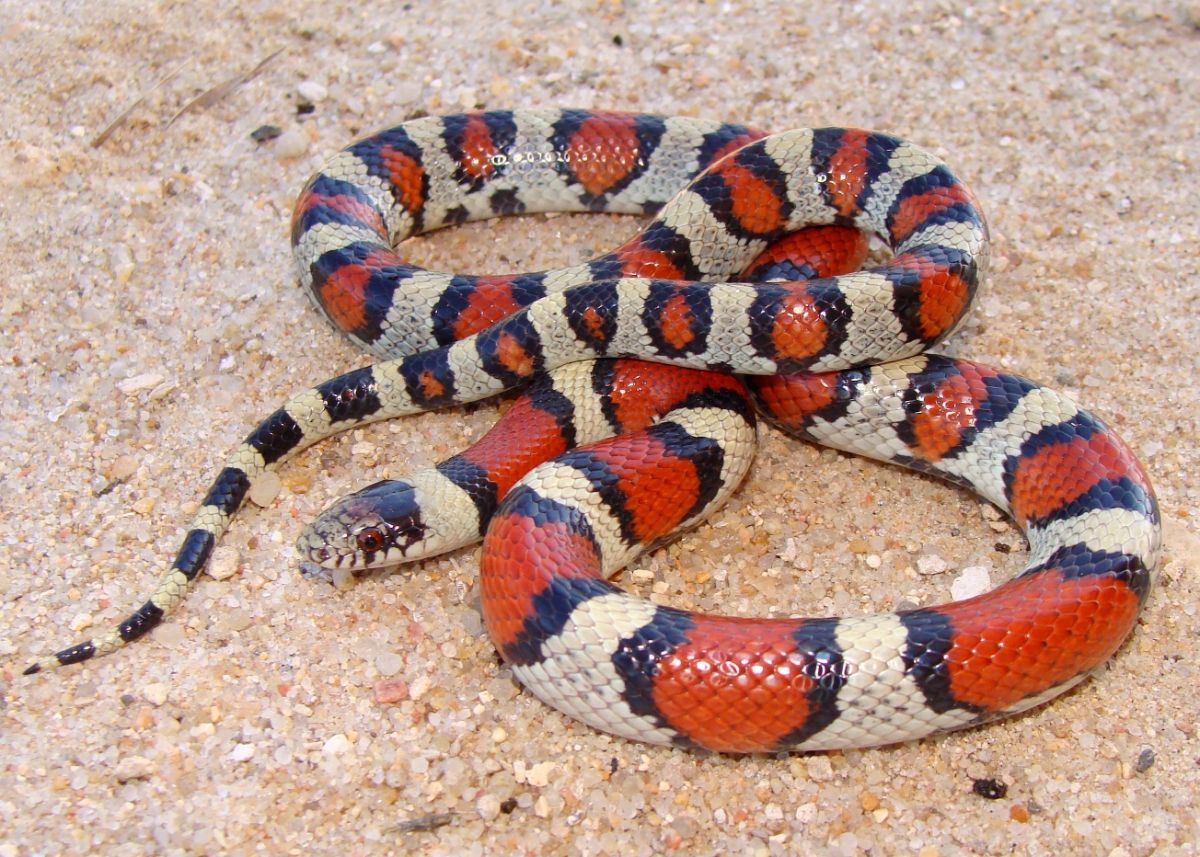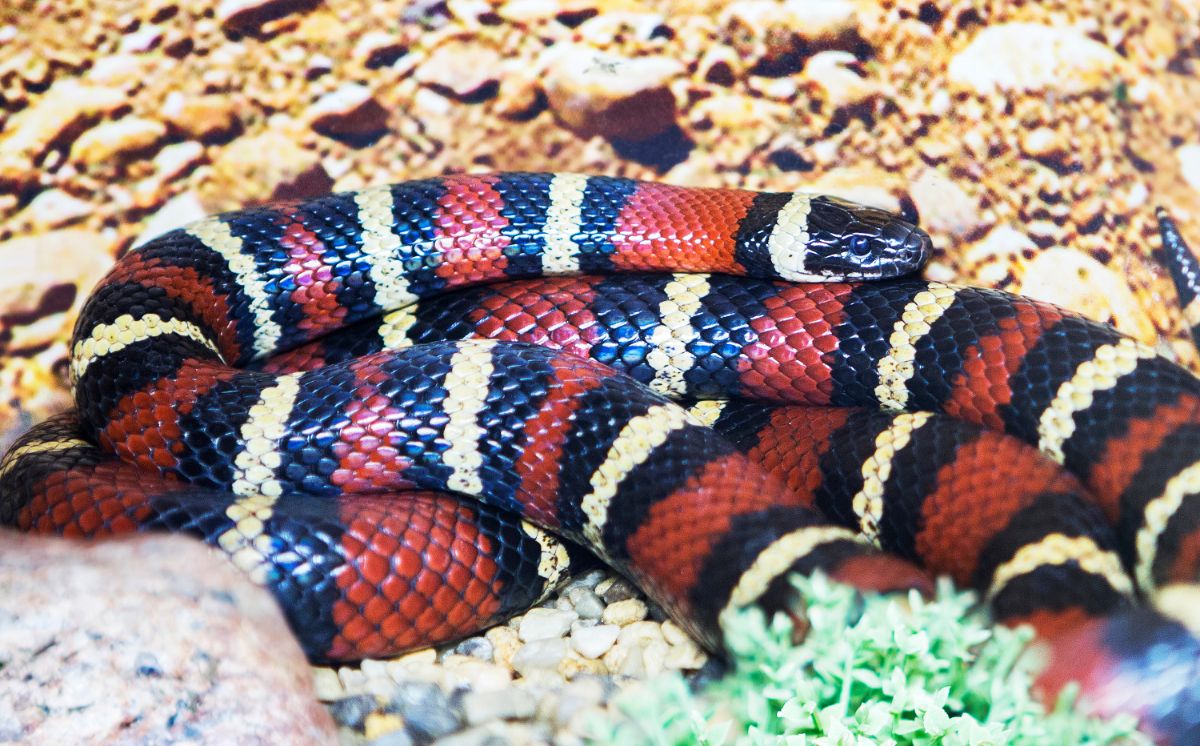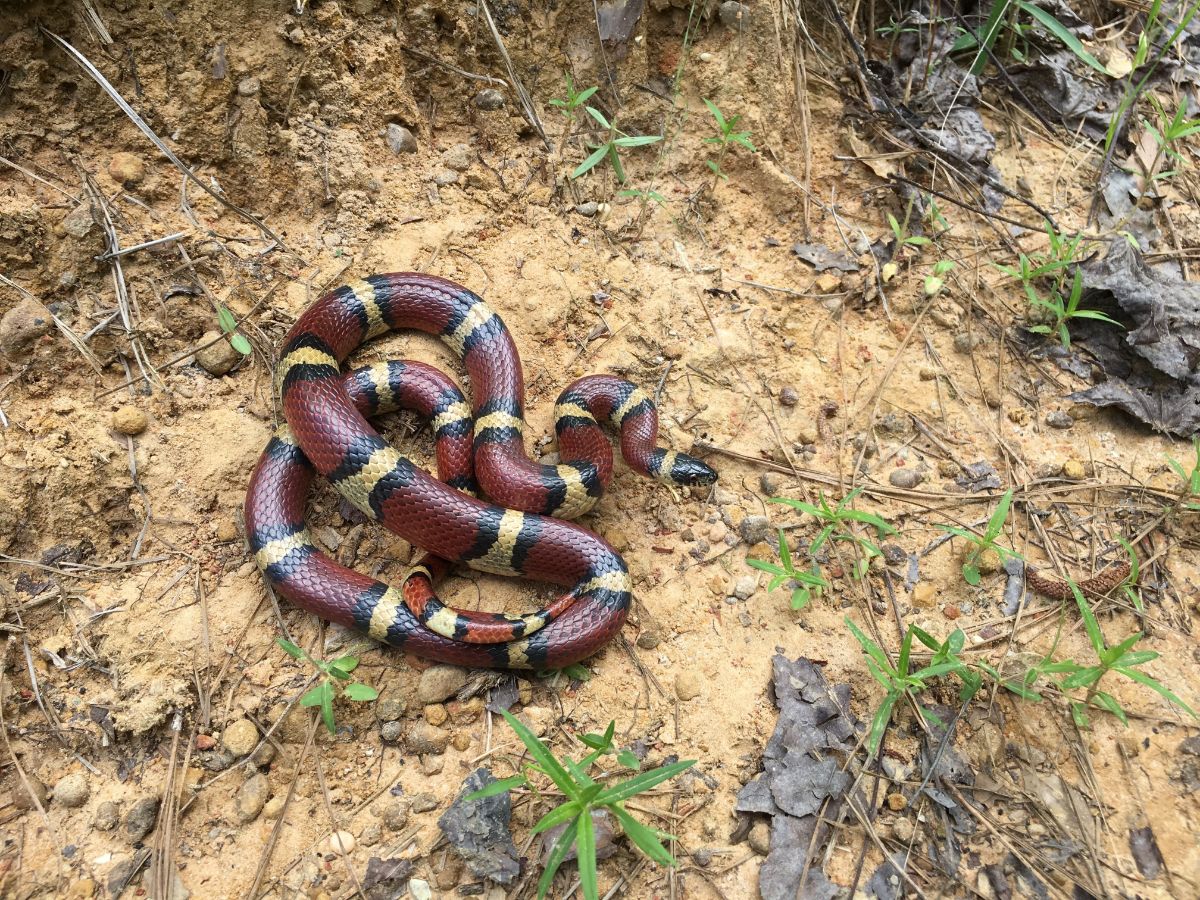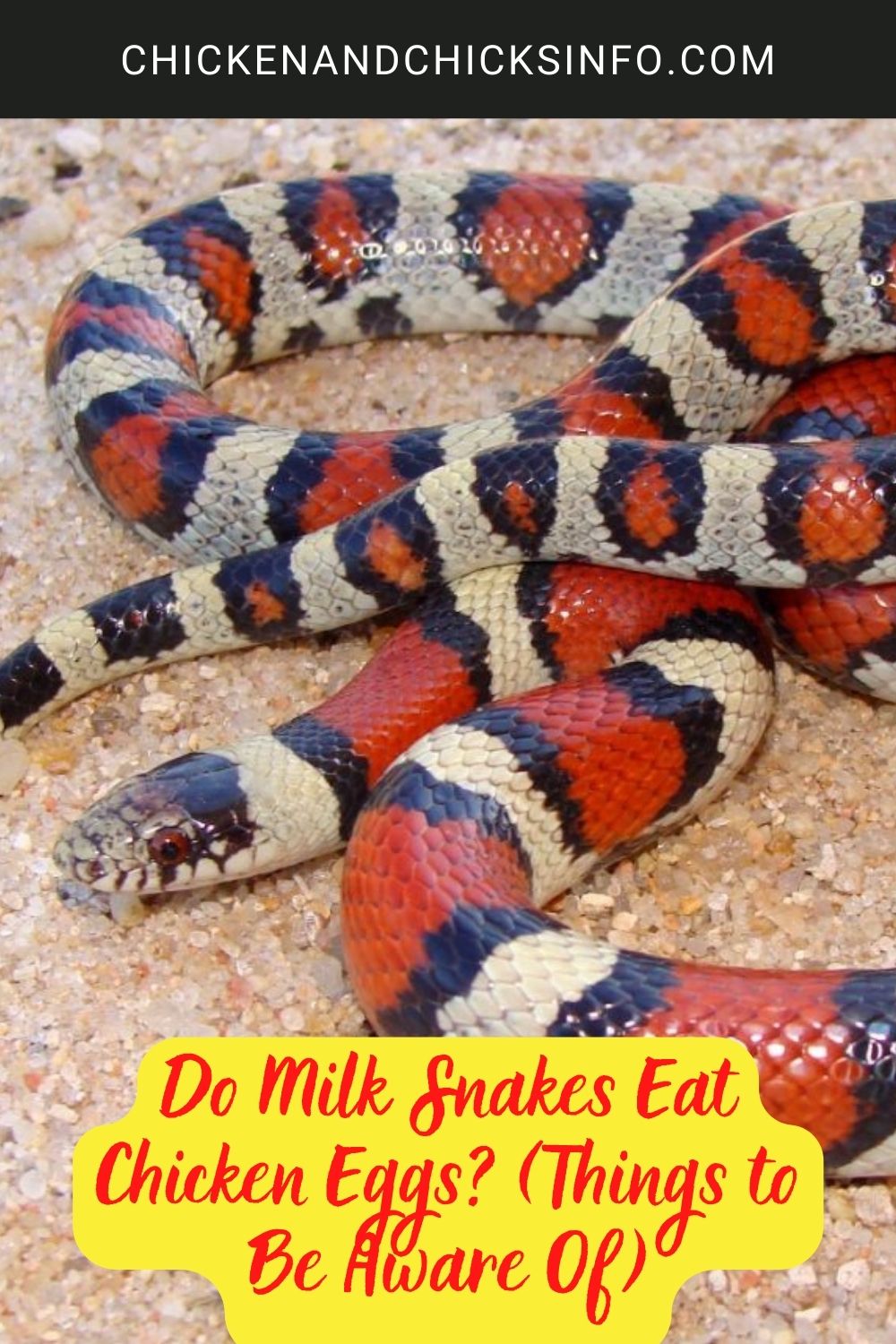
Milk snakes are carnivorous. They typically eat small rodents like mice, voles, and rats, as well as lizards and small birds.
They will also eat eggs, should the opportunity present itself. A large egg might be more than a mouthful for a milk snake, but it doesn’t mean it will not try!
Whether you know there are milk snakes - or any other snakes - in your area or not, as a backyard chicken owner it’s crucial you make your chicken’s coop and run as predator-proof as possible!
Jump to:
Do Milk Snakes Eat Chicken Eggs?
I’m a big fan of milk snakes. I’ve never owned one (snakes aren’t my thing), but I’ve come across them before and a good friend owns one.
If I were to own a snake, it would probably be a milk snake.
Milk snakes are classified as ‘harmless’ constrictors, they’re not venomous, and I’m told they have a placid and non-aggressive temperament.
If you come across one when you’re outside, they’re usually easy to spot due to their cool striped pattern.
There are 25 different subspecies of milk snakes across North America. They vary in color but are typically black or red with white or yellow stripes
Milk snakes, much like most snakes, are opportunistic eaters. They’ll eat most rodents and small creatures they can get a hold of, as well as the eggs and young offspring.
This does include chicken eggs, although I’m not sure a milk snake would be able to eat a large or jumbo-sized egg.
I’ve not been able to find any reliable information to confirm exactly what size egg they’re capable of eating - but, it’s best not to find out!
A little bit of trivia; Milk snakes got their name because they were found to be milking sleeping cows!
Do Chicken Eggs Attract Snakes?

A lot of backyard chicken owners are concerned that chicken eggs attract snakes, but I’ve never been able to find any evidence to back this up.
Snakes are opportunist scavengers, it’s more likely the smell of a coop and your chickens that attract them, and they end up stealing eggs after entering a coop.
If eggs are breaking open in your chicken’s coop, however, this is a different matter as a snake will likely smell the yolk of the egg.
For this reason, it’s important that you do everything you can to avoid eggs breaking, and clean up any spillages as you see them.
I don’t think leaving an egg out any longer than necessary makes it more likely snakes will enter your coop though, they’ll enter anyway.
What Kind of Snake Eats Chicken Eggs?
All snakes are carnivores. Some prefer warm-blooded prey, and some prefer cold-blooded prey, but as far as I can tell, all snakes will eat eggs.
It’s not a question of whether or not a snake will eat an egg, it’s just a question of if the snake is physically big enough to gobble it up.
To give you a better idea, some species of snake found across North America that that are known egg thieves are:
- Copperheads
- Chicken snakes (this encompasses several species of snakes)
- Pythons
- King snakes
- Milk snakes (as covered in this article)
- Cottonmouths
- Various types of Rattlesnake
- Egg-eating snakes
- To name just a few
The (impressive) thing about snakes is that they’re able to eat things that look like they’d be far too big for them to get into their jaws.
This is made possible because a snake can literally unhinge their jaws and widen its mouth to eat something up to three times the size of what you’d expect.
Related - More about the dangers snakes present to chickens.
Do Chickens Scare Away Snakes?

If you’re wondering if your chickens will be able to protect their eggs and scare snakes away, the answer depends on the size and type of the snake and your breed of chicken.
Some chickens are better than others when it comes to dealing with predators like snakes.
Ideally, it’s not something you ever want to wait and find out though. Snakes are predators, and if they’re hungry they can be very dangerous.
A lot of snakes will not only take eggs, but they will also kill chickens. It takes a big snake to eat a whole chicken, but they can cause some chaos in a coop in the process.
It’s worth taking a look at your coop and run for any holes or possible entry points, no matter how small.
Your chooks may be able to defend themselves against a small milk snake, but it’s still going to be a stressful encounter that can cause some distress.
The best defense is to make sure a sneaky snake cannot find a way into their coop, especially at night.
The last thing you want is to enter the coop in the morning to find that a snake has been loose in there for several hours causing havoc.
In Summary
Don’t be fooled by a milk snake’s colorful appearance, docile behavior, and small size - they are perfectly capable of stealing your chickens’ eggs given the chance!
As backyard chicken owners, we always have to be proactive about making sure our chooks are nice and safe, especially overnight.
It’s always better to be safe than sorry!
Resources
Sinaloan milksnake - Smithsonian National Zoo





